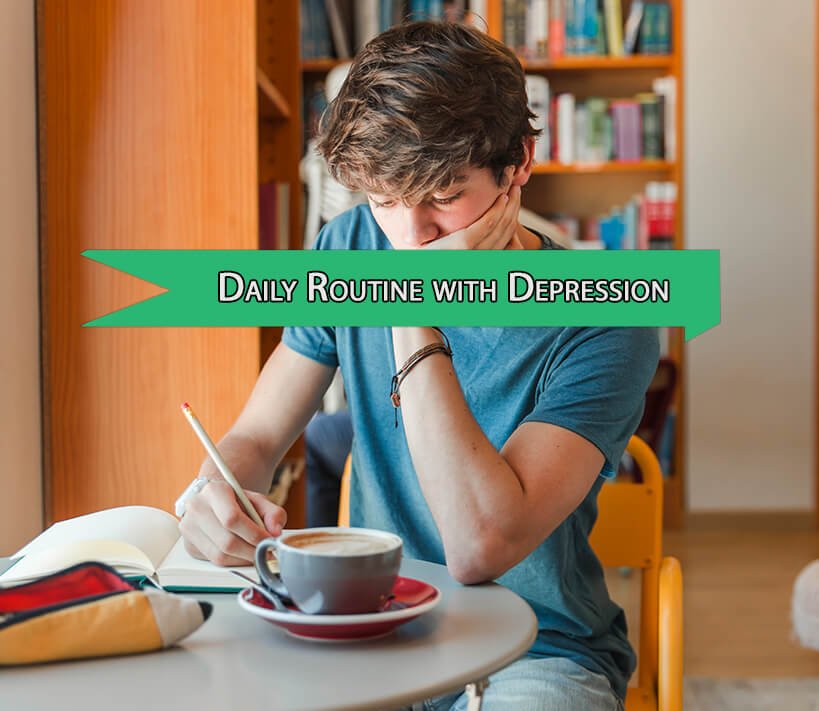When depression takes hold, getting out of bed and facing the entire day can feel overwhelming. The idea of creating a daily routine may seem impossible, but with the right approach, a structured routine can provide stability and help reduce the unpredictability of depression symptoms. In this blog, we will share a few tips that can help you create your daily routine, which will support and improve your mental health. Depression can disrupt every aspect of life, including sticking to your daily routine. However, developing a consistent daily routine is a powerful tool for managing depression. It provides structure and predictability, which helps reduce the emotional turmoil associated with the condition.
Here are a few tips to help you build a daily routine that works for you:
1. Practice Mindfulness Meditation
Mindfulness meditation is a powerful tool for managing depression. It involves focusing on the present moment, which helps reduce negative thinking patterns perpetuating sadness and hopelessness. Daily meditation keeps your mind calm and relaxed, creating a sense of inner peace. This practice encourages emotional regulation, enhances self-awareness, and helps you develop a more positive outlook on life. Over time, regular meditation can improve your ability to cope with stress and anxiety, making it easier to navigate challenging emotions and situations.
2. Engage in Regular Exercise
Exercise has a powerful antidepressant effect, which is why every mental health professional recommends it. If you exercise for just 30 minutes a day, it can improve your mood. Physical activity stimulates the production of a hormone called endorphins, which are mood elevators. Even a brisk walk or yoga can significantly improve your mental health. Regular exercise not only boosts your psychoaura but also promotes better sleep, reduces anxiety, and improves focus. Over time, these benefits help create a more balanced and resilient mind, improving overall well-being and emotional stability.
3. Connect with Others
Being alone can worsen depression, which is why it is critical to stay connected with your family, friends, and social groups. Share your thoughts with people who motivate you, understand you, and offer help. Talking to someone can relieve half of your tension, and the social support you receive helps you feel less alone and provides emotional comfort. Even if you can not talk to others, you should still be around people you connect with.
4. Maintain a Healthy Sleep Routine
Disturbed sleep patterns are common in depression, but a good night sleep is crucial for emotional well-being. Establishing a consistent sleep schedule and implementing sleep hygiene techniques is essential. This improves your sleep quality, and making relaxation techniques a daily habit, such as deep breathing, reading, or walking, can help you unwind before bed. Also, avoiding screens and heavy meals before bedtime can enhance relaxation and help you fall asleep faster, promoting a more restful night sleep.
5. Challenge Negative Thoughts
Depression often brings a wave of negative thinking such as “I am not good enough” or “Things will never get better.” Learn to challenge these thoughts by questioning their validity. Cognitive Behavioral Therapy (CBT) exercises can be beneficial for this. By identifying distorted thinking patterns and replacing them with more realistic, balanced thoughts, you can reduce feelings of hopelessness. Practicing this consistently helps shift your mindset, fostering a more positive and empowering perspective on life.
6. Make a Habit of Writing
If you feel like there are things you can not share with anyone, feel misunderstood, or cannot express verbally, try writing them down in a pen-and-paper diary. When you read what you have written, remember that it is leaving your mind and becoming external. By reading aloud, you hear your own words, which can help you feel more relaxed and less burdened by your thoughts. It helps externalize internal struggles, allowing individuals to process their emotions objectively. Reading aloud can create a distance from overwhelming feelings and promote emotional release.
7. Use Psychoaura as a Guide
Some individuals with depression report experiencing a psychoaura shift before a depressive episode entirely takes hold. This term refers to a subtle internal awareness that your mood is beginning to change. By becoming more attuned to these shifts, you can take preemptive action, such as engaging in self-care or using coping techniques to minimize the intensity of your depression.
8. Seek Professionals Help
While self help strategies are essential and complementary, they cannot replace professional treatment. Therapy, medication, and other interventions provide relief from depression. You should not hesitate to seek help from mental health professionals and reach out to them when needed. Professional guidance ensures proper diagnosis, personalized treatment plans, and ongoing support.
Conclusion
These self help tips for depression are not meant to replace professional treatment but can serve as valuable tools in managing daily symptoms. Depression is not a sign of weakness, and taking proactive steps toward healing is a courageous and empowering act. Seeking help and using these strategies together can create a more holistic approach to recovery.




